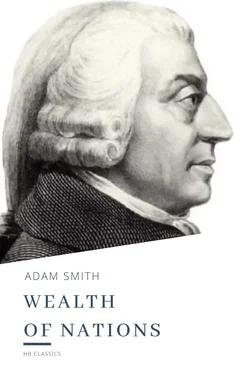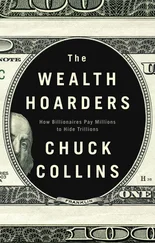The dangers and hairbreadth escapes of a life of adventures, instead of disheartening young people, seem frequently to recommend a trade to them. A tender mother, among the inferior ranks of people, is of afraid to send her son to school at a seaport town, lest the sight of the ships and the conversation and adventures of the sailors should entice him to go to sea. The distant prospect of hazards, from which we can hope to extricate ourselves by courage and address, is not disagreeable to us, and does not raise the wages of labour in any employment. It is otherwise with those in which courage and address can be of no avail. In trades which are known to be very unwholesome, the wages of labour are always remarkably high. Unwholesomeness is a species of disagreeableness, and its effects upon the wages of labour are to be ranked under that general head.
In all the different employments of stock, the ordinary rate of profit varies more or less with the certainty or uncertainty of the returns. These are in general less uncertain in the inland than in the foreign trade, and in some branches of foreign trade than in others; in the trade to North America, for example, than in that to Jamaica. The ordinary rate of profit always rises more or less with the risk. It does not, however, seem to rise in proportion to it, or so as to compensate it completely. Bankruptcies are most frequent in the most hazardous trades. The most hazardous of all trades, that of a smuggler, though when the adventure succeeds it is likewise the most profitable, is the infallible road to bankruptcy. The presumptuous hope of success seems to act here as upon all other occasions, and to entice so many adventurers into those hazardous trades, that their competition reduces their profit below what is sufficient to compensate the risk. To compensate it completely, the common returns ought, over and above the ordinary profits of stock, not only to make up for all occasional losses, but to afford a surplus profit to the adventurers of the same nature with the profit of insurers. But if the common returns were sufficient for all this, bankruptcies would not be more frequent in these than in other trades.
Of the five circumstances, therefore, which vary the wages of labour, two only affect the profits of stock; the agreeableness or disagreeableness of the business, and the risk or security with which it is attended. In point of agreeableness, there is little or no difference in the far greater part of the different employments of stock; but a great deal in those of labour; and the ordinary profit of stock, though it rises with the risk, does not always seem to rise in proportion to it. It should follow from all this, that, in the same society or neighbourhood, the average and ordinary rates of profit in the different employments of stock should be more nearly upon a level than the pecuniary wages of the different sorts of labour. They are so accordingly. The difference between the earnings of a common labourer and those of a well employed lawyer or physician, is evidently much greater than that between the ordinary profits in any two different branches of trade. The apparent difference, besides, in the profits of different trades, is generally a deception arising from our not always distinguishing what ought to be considered as wages, from what ought to be considered as profit.
Apothecaries' profit is become a bye-word, denoting something uncommonly extravagant. This great apparent profit, however, is frequently no more than the reasonable wages of labour. The skill of an apothecary is a much nicer and more delicate matter than that of any artificer whatever; and the trust which is reposed in him is of much greater importance. He is the physician of the poor in all cases, and of the rich when the distress or danger is not very great. His reward, therefore, ought to be suitable to his skill and his trust, and it arises generally from the price at which he sells his drugs. But the whole drugs which the best employed apothecary, in a large market town, will sell in a year, may not perhaps cost him above thirty or forty pounds. Though he should sell them, therefore, for three or four hundred, or at a thousand per cent profit, this may frequently be no more than the reasonable wages of his labour charged, in the only way in which he can charge them, upon the price of his drugs. The greater part of the apparent profit is real wages disguised in the garb of profit.
In a small seaport town, a little grocer will make forty or fifty per cent upon a stock of a single hundred pounds, while a considerable wholesale merchant in the same place will scarce make eight or ten per cent upon a stock of ten thousand. The trade of the grocer may be necessary for the conveniency of the inhabitants, and the narrowness of the market may not admit the employment of a larger capital in the business. The man, however, must not only live by his trade, but live by it suitably to the qualifications which it requires. Besides possessing a little capital, he must be able to read, write, and account, and must be a tolerable judge too of, perhaps, fifty or sixty different sorts of goods, their prices, qualities, and the markets where they are to be had cheapest. He must have all the knowledge, in short, that is necessary for a great merchant, which nothing hinders him from becoming but the want of a sufficient capital. Thirty or forty pounds a year cannot be considered as too great a recompense for the labour of a person so Accomplished. Deduct this from the seemingly great profits of his capital, and little more will remain, perhaps, than the ordinary profits of stock. The greater part of the apparent profit is, in this case too, real wages.
The difference between the apparent profit of the retail and that of the wholesale trade, is much less in the capital than in small towns and country villages. Where ten thousand pounds can be employed in the grocery trade, the wages of the grocer's labour make but a very trifling addition to the real profits of so great a stock. The apparent profits of the wealthy retailer, therefore, are there more nearly upon a level with those of the wholesale merchant. It is upon this account that goods sold by retail are generally as cheap and frequently much cheaper in the capital than in small towns and country villages. Grocery goods, for example, are generally much cheaper; bread and butcher's meat frequently as cheap. It costs no more to bring grocery goods to the great town than to the country village; but it costs a great deal more to bring corn and cattle, as the greater part of them must be brought from a much greater distance. The prime cost of grocery goods, therefore, being the same in both places, they are cheapest where the least profit is charged upon them. The prime cost of bread and butcher's meat is greater in the great town than in the country village; and though the profit is less, therefore, they are not always cheaper there, but often equally cheap. In such articles as bread and butcher's meat, the same cause, which diminishes apparent profit, increases prime cost. The extent of the market, by giving employment to greater stocks, diminishes apparent profit; but by requiring supplies from a greater distance, it increases prime cost. This diminution of the one and increase of the other seem, in most cases, nearly to counterbalance one another, which is probably the reason that, though the prices of corn and cattle are commonly very different in different parts of the kingdom, those of bread and butcher's meat are generally very nearly the same through the greater part of it.
Though the profits of stock both in the wholesale and retail trade are generally less in the capital than in small towns and country villages, yet great fortunes are frequently acquired from small beginnings in the former, and scarce ever in the latter. In small towns and country villages, on account of the narrowness of the market, trade cannot always be extended as stock extends. In such places, therefore, though the rate of a particular person's profits may be very high, the sum or amount of them can never be very great, nor consequently that of his annual accumulation. In great towns, on the contrary, trade can be extended as stock increases, and the credit of a frugal and thriving man increases much faster than his stock. His trade is extended in proportion to the amount of both, and the sum or amount of his profits is in proportion to the extent of his trade, and his annual accumulation in proportion to the amount of his profits. It seldom happens, however, that great fortunes are made even in great towns by any one regular, established, and well-known branch of business, but in consequence of a long life of industry, frugality, and attention. Sudden fortunes, indeed, are sometimes made in such places by what is called the trade of speculation. The speculative merchant exercises no one regular, established, or well-known branch of business. He is a corn merchant this year, and a wine merchant the next, and a sugar, tobacco, or tea merchant the year after. He enters into every trade when he foresees that it is likely to be more than commonly profitable, and he quits it when he foresees that its profits are likely to return to the level of other trades. His profits and losses, therefore, can bear no regular proportion to those of any one established and well-known branch of business. A bold adventurer may sometimes acquire a considerable fortune by two or three successful speculations; but is just as likely to lose one by two or three unsuccessful ones. This trade can be carried on nowhere but in great towns. It is only in places of the most extensive commerce and correspondence that the intelligence requisite for it can be had.
Читать дальше












